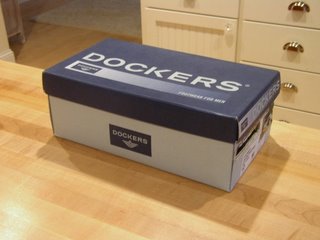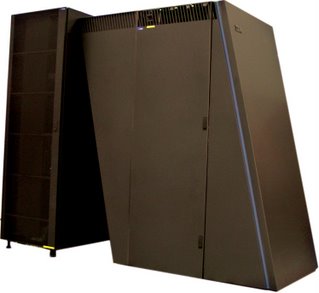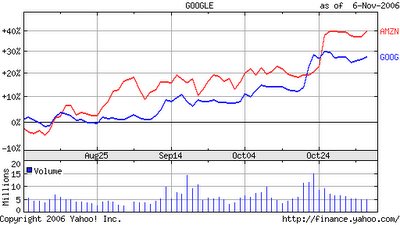
L
ast Friday's item about Amazon's web services being more important than YouTube generated some interesting comments.
First, of course, was Bill Boebel's comment that his company is now using all 3 of Amazon's web services (see my
follow-up post).
Later, Jeff Richards (of
Verisign, now blogging at
Demand Insights) asked if I lump Salesforce.com's
AppExchange in with Amazon's web services. The answer is, by and large, yes. They're creating a platform on which people can build their own online apps. They've got a different angle, though. First of all, the applications built on AppExchange are "pre-integrated with Salesforce." What does that mean? Well, it seems to mean that they're encouraging companies to help Salesforce increase their footprint in the market. You don't write just
any app with AppExchange--you write apps that use the principles and entities in Salesforce.
That's not a critique of the system, by the way. In a way, it's genius. They are encouraging other ISV's to increase the value of the Salesforce platform by adding functionality to it.
On the other hand, it doesn't seem like a general development platform--it's geared toward a certain set of applications (and toward people who are using Salesforce already).
Amazon, on the other hand, has developed a completely neutral set of services. Using them doesn't make you more likely to buy a book from Amazon. And, if you build a great app on top of AWS, there's no chance that Amazon will subsequently release software with the same features as yours--the developers running on AppExchange have no such assurances. If you write the next great add-on for Salesforce--you may find that Salesforce decided they need to compete with you!
Next comment: the always entertaining
Muli Koppel notes that I missed the most interesting Amazon service of all:
Mechanical Turk.
Personally, though, I consider S3, EC2, and SQS as examples for Innovative Execution - amazing, fantastic, chapeau etc. - and yet somewhat inferior to Amazon's Mechanical Turk, which is a sensational breakthrough not only on the practical packaging and delivering level (the other three), but also on the social, economical, existential, anthropological, philosophical and whatever else *-ical level that is relevant to our future life.
As usual, he hit the nail on the head. While S3, EC2, and SQS break barriers, MT breaks an entire paradigm: the idea that computers can't do what a person can do.
I have yet to hear how people are using MT, but I'd love to hear some stories.
By the way, I have to relate one secret about the concept of humans powering computers (a la Mechanical Turk): I invented it. Well, kind of.
As a kid, I loved to pretend I was an inventor. One thing I "invented" was a "computer" you could put any math problem in--you simply wrote the problem on a piece of paper and slipped it through a slot. After a while, the piece of paper would slide back out--with the answer written on it. Of course, the "computer" was a decorated shoebox, the "brains" behind the computer were my own, and it was limited to the math problems that my 2nd grade mind could handle.
It also, of course, lacked a web service interface.
Still, in my own way, I think it was prescient of things to come...
[Image borrowed from
here. There's a good shoebox computer story there, too]










